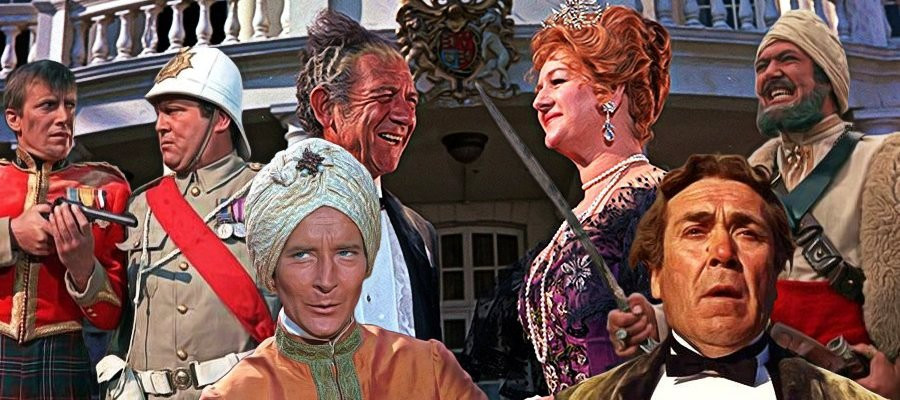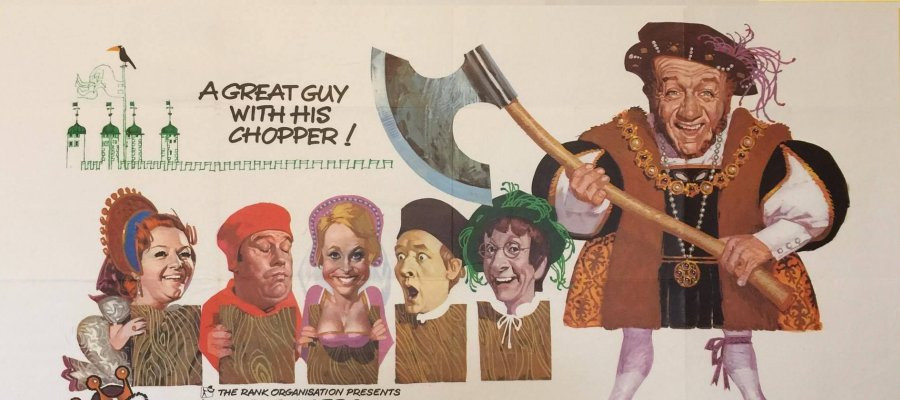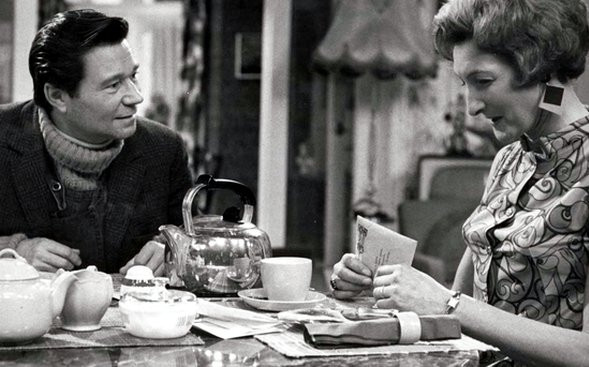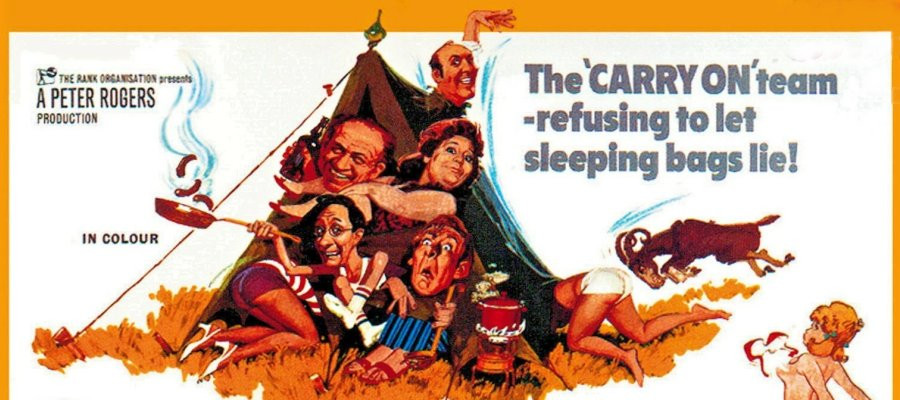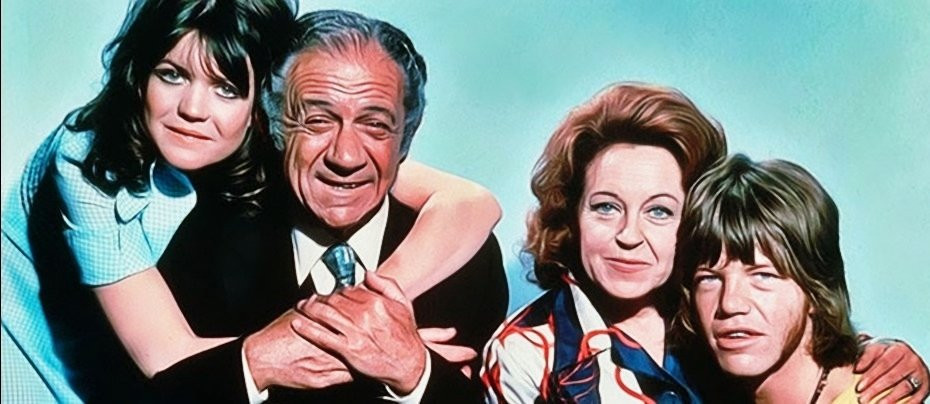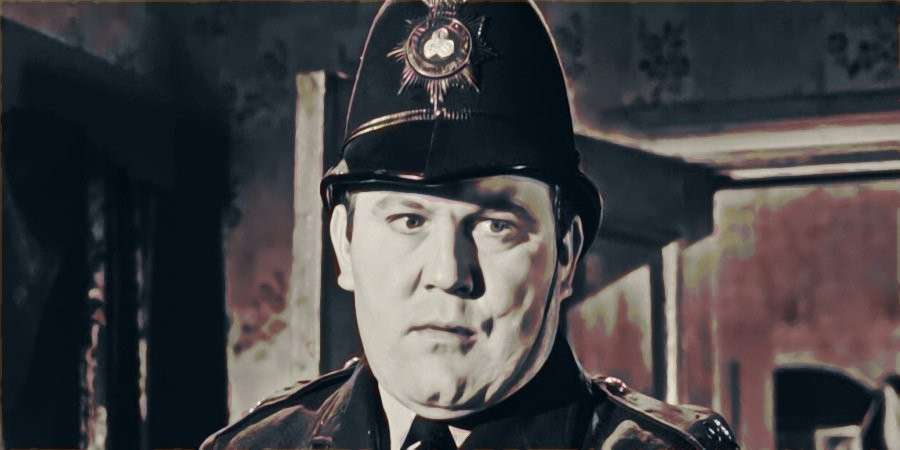
Terry Scott
"(With) so little of his earlier days surviving the dreaded wiping cull of many old shows, it’s remarkable just how little Terry Scott material remains"
By Brian Slade
The changing tastes of British comedy have led to a number of shows being left on the shelf for many years. While some such as It Ain’t Half Hot Mum and Little Britain have found new audiences on those nostalgia channels brave enough to show them, there are those who remain in the wilderness. Surprisingly, one such show whose inoffensiveness was seen as its greatest weakness has remained on the shelf in the nostalgia world, leaving the legacy of one of its stars, who was one of the most recognisable faces and voices of the small screen, to drift away. That show was Terry and June – and when was the last time you saw anything involving Terry Scott on screen?
The BBC in the 1980s was happy to swing the axe on many a comedy that it no longer considered fashionable. Despite years of success and viewing figures that comfortably outshone newer rivals, Terry and June was considered too twee to justify its existence beyond 1987. The BBC didn’t consider shows that depicted homes where the husband bumbled his way through working life to impress an unappreciative boss with the help of a stay-at-home wife to be reflective of viewers’ demands. With Scott’s own health on the decline, Terry and June’s success would forever be his legacy – and that was now being ridiculed as out of date and unwanted.
What people now don’t appreciate is just how much work Scott had before the Medfords arrived on the comedy scene and just how big of a name he was.
Born Owen John Scott in the 1920s in Watford, Scott, like so many of his peers, was warned off a career in entertainment by his parents, neither of whom had any showbusiness connection. However, young Owen would not be swayed. Despite being partially deaf, he performed for friends and family, although his childhood was tinged with sadness due to the death of his brother at the age of six.
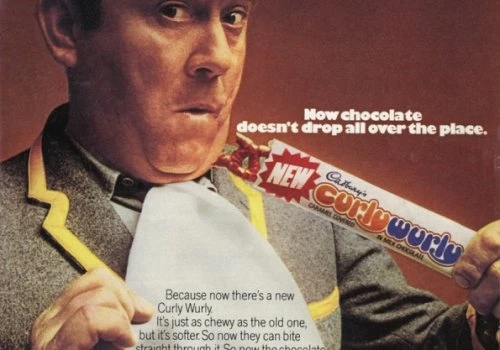
National service followed his youthful appearances as he was forced into accountancy for an income, a career path most definitely not suitable for such a showman. He put in all the hard yards as so many aspiring comic performers did, with his most successful act being that of a naughty schoolboy, and it was not only his most successful early routine but it was the one that stood him in the strongest stead in the subsequent years. He would have a huge hit record with the comedy single My Brother in which he would bemoan getting the blame for his brother’s mischievous antics.
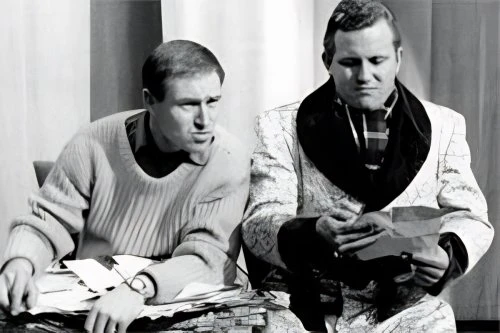
Once he had become successful with a run in farces at the Whitehall Theatre, Scott (now Terry) would get regular radio roles, his schoolboy vocals continuing to earn him work. But television would come calling in 1955 when he partnered another aspiring comedy performer, Bill Maynard, in Great Scott, It’s Maynard, an early sitcom format about a pair sharing a flat. The show was a success, but short-lived. Sitcom producer David Croft would later say that the duo, ‘both had egos big enough to sink the Titanic, so they were no longer keen to work together.’
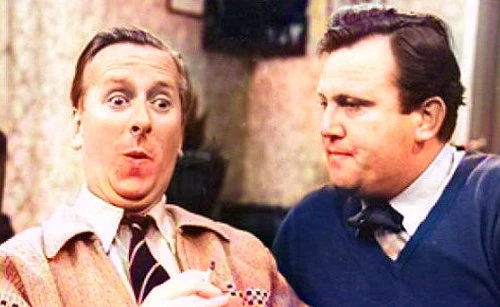
Croft would be the beneficiary of the clash of personalities, as he was able to pair Scott with a far more passive figure in Hugh Lloyd in the very successful show, Hugh and I. It was the first sign of Scott being difficult to work with, but Croft would later dismiss such an interpretation. He believed that Scott was just a remarkable perfectionist. Everything had to be right, and Terry had an opinion on how such things should be achieved. Croft recalled that Terry felt that the mild-mannered Lloyd didn’t work as hard as he did, but he remembered, ‘Hugh worked quite as hard as Terry, but it just didn’t look like it.’ Indeed, Terry would always carry a rather overworked, exasperated look about him in all his roles.
The Gnomes of Dulwich, a Jimmy Perry penned comedy about two gnomes discussing the world’s problems, saw Scott perform alongside Lloyd for one last time, and then Son of the Bride was equally short lived as he played a son interfering in the impending nuptials of his mother, played by Mollie Sugden.
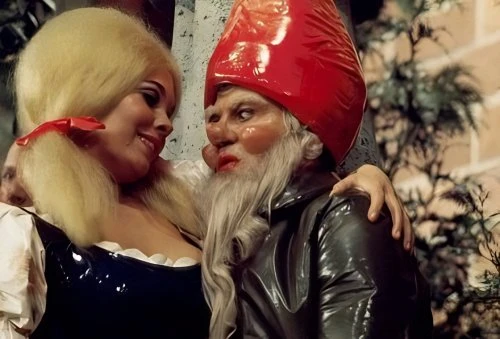
Scott’s biggest success after his partnership with Hugh Lloyd was with the Scott On… series, in which he would appear in a collection of sketches all linked by a core subject. The shows would be named Scott On…Marriage, Scott On…Industry etc. It would allow him to work with an array of the finest performers of the time and was written by two comedy greats in Barry Took and Marty Feldman. Frank Thornton and Peter Butterworth were regular guests, but the most significant was June Whitfield, who would invariably appear as Terry’s better half. It was the beginning of a partnership that would last almost the rest of Terry’s career.
Happy Ever After was the sitcom bi-product of those Scott On… sketches, and Scott and Whitfield were drawing in the viewers with their cosy life comedy as Mr and Mrs Fletcher dealing with an eccentric Aunt and her talking bird. The die was cast as June continually dealt with her husband’s exasperating schemes. Given what would eventually befall Terry and June at the BBC, it was somewhat ironic that it was they who kept Scott and Whitfield’s on-screen marital life alive in 1978. Writers John Chapman and Eric Merriman were ready to end the show, but with healthy viewing figures the Corporation wanted more. With a dispute brewing between the BBC and Merriman over rights, the BBC simply changed the couple’s name and location, and the Fletchers became the Medfords, ditching Aunt Lucy and living in Purley.
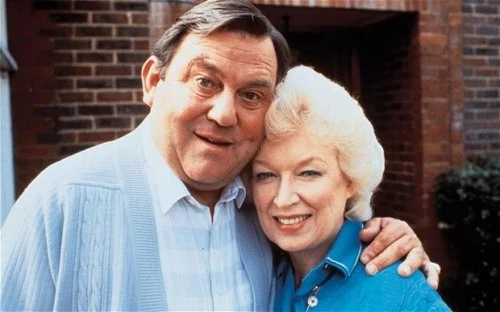
Just one series in Scott became seriously ill. He had an operation after a brain haemorrhage and aneurysm. He survived, despite concerns that he wouldn’t, and once back at work he continued on Terry and June until the BBC axed it after 65 episodes. It was a show that divided opinion. Seen as far too safe and cosy, it continually riled critics, seemingly more than most shows, but still the viewers watched – as many as 15 million of them at the show’s peak. Even after they axed it, the BBC changed their mind, but with writer John Kane having chosen the Royal Shakespeare Company over unemployment after the BBC’s initial decision, he was unable to oblige them with another series, so that was the end of Terry and June.
Terry would continue to be heard on television as Penfold, the enthusiastic sidekick to David Jason’s Dangermouse in the long-running animation show. His vocal talents remained exceptional, but it would be his only remaining significant television presence. He returned to the stage regularly, especially in pantomime where he was arguably at his happiest in the regular panto dame roles.
Terry Scott died in 1994 after a seven-year battle with cancer. He had been beset by health problems since his initial diagnosis in 1987, including a partial paralysis.
His reputation has been somewhat tarnished since his death. Everybody seemed to know how tricky he was to work with. Some have been very forthright in their opinions, Miriam Margolyes singling him out as the nastiest person she ever worked with. Others felt he was the ultimate perfectionist and simply couldn’t tolerate anything short of perfection in anybody else. He couldn’t handle actors who didn’t learn their lines as religiously as he did. Even June Whitfield conceded that when Terry suggested there was a better way for her to perform a line, she would just repeat it in the exact same way next time around simply to appease his ego into thinking he had improved the scene.
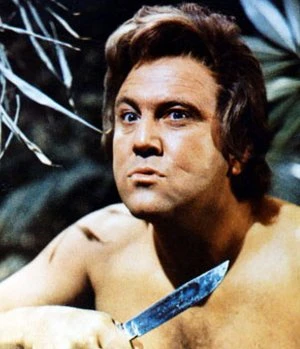
Scott was abrasive to some, but those who were able to get to know him got to like him. He was also somewhat of an enigma. Loose with his talk when off the record, he let too much slip about his private life in the 1980s and found himself on the front page of the tabloids as a result of what he thought was an innocent chat, something that hurt him and his family deeply and only added to outside perceptions of his personality. He partook in a brief interview during a run of a play in Bournemouth in which he explained why he continued to join the choir in a local church during the season. ‘There’s a lot of rotten things in me,’ he said. ‘I try to get rid of them on a Sunday morning. I suppose I feel better afterwards.’
With Terry and June and Happy Ever After long since discarded, and so little of his earlier days surviving the dreaded wiping cull of many old shows, it’s remarkable just how little Terry Scott material remains. Outside of some Carry On… film bellowing, Scott really is a forgotten man and somewhat of an enigma, with his reputation taking a hit without being able to defend himself. But there is no doubt that he was a fine comedian, with an instantly recognisable vocal style and if based on talent alone, his is a shamefully overlooked one.
Published on December 21st, 2023. Written by Brian Slade for Television Heaven.


